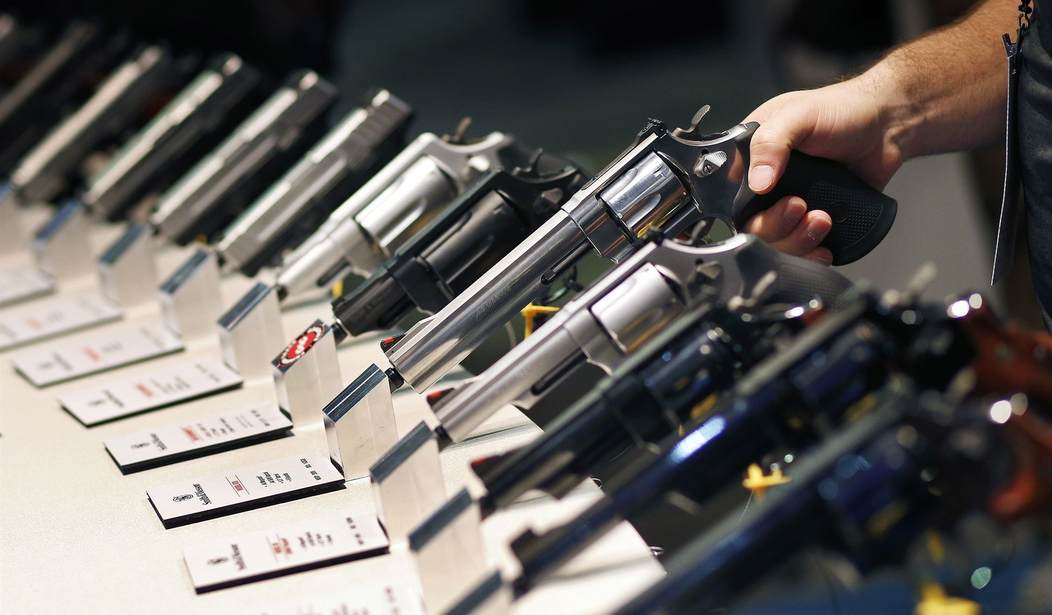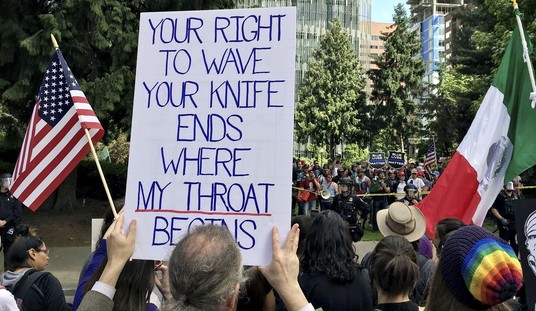“If it weren’t for double standards they’d have no standards at all.”
This is a common response to pretty much anyone pointing out a double standard anywhere. All too often, though, it’s true.
It’s especially true when you’re looking at the supposedly unbiased media. You see, despite claiming that their reporting is neutral, it’s most definitely anything but.
Yet even their opinion pieces, such as editorials, make their double standards very clear. Take this one out of Pennsylvania, titled, “The Pennsylvania Legislature needs to pass sensible gun laws, instead of pandering to pro-gun interests.”
The piece itself starts by taking issue with a push for access to a list of donors who helped the city of Lansing defend itself against a lawsuit filed by the NRA.
“A gun-rights lawyer is fighting Lancaster city to get names of people who gave money to a legal fund the city set up to defend itself against a National Rifle Association lawsuit — even though the fund has been defunct for years,” LNP | LancasterOnline’s Dan Nephin reported Sunday. “The city now, as in 2015, maintains that the donors’ names are exempt from disclosure under Pennsylvania’s Right to Know law.”
The lawsuit at the heart of this open-records dispute was enabled by a terrible piece of state legislation.
It’s worth revisiting that legislation, as it’s illustrative of the preferential treatment that gun-rights organizations get in Harrisburg — and how the public safety interests of ordinary citizens are too often ignored.
Act 192 of 2014 was so terrible that it was struck down by the Pennsylvania Commonwealth Court in June 2015. The state Supreme Court affirmed that ruling in 2016.
The mercifully short-lived law had gone into effect in January 2015. It enabled anyone or any organization “adversely affected” by a municipality’s local gun ordinance to sue the municipality; legal standing was afforded even if the plaintiff didn’t reside in the municipality.
But here we come to a certain word again:
So intent were Republican lawmakers in Harrisburg on cravenly pandering to pro-gun interests that they tried to pass another version of Act 192 after that law was struck down. Some state lawmakers wax on about “local control” — but never in the face of pressure from guns-rights organizations.
Pandering.
You see, the issue here is that it’s never pandering when legislatures bow to anti-gun pressure. When Florida passed a red flag law and raised the age to buy long guns to 21, no one in the media called it pandering.
Then it was a righteous response to a horrible tragedy, at least as reported by that same media.
It’s only when a pro-gun effort succeeds that it’s termed as pandering or lawmakers are accused of being bought and sold.
Gun rights groups and gun control groups are legally required to play by the same rules. They do the exact same things, but the editorial board that accused lawmakers in Pennsylvania of pandering to pro-gun groups–despite a valid case being made that those adversely affected by local ordinances really did have standing to sue–makes it pretty clear that they view the two very differently.
Can you honestly tell me this doesn’t color reporting? Editorials are, in essence, the voice of the publication speaking the opinions of that publication. It’s kind of hard to believe gun stories can be covered fairly when it’s also clear they don’t think pro-gun groups engaging in protected speech is remotely the same as what anti-gun groups do.
It was pandering because the team they like lost. We all know it.
But a lot of people out there don’t. They’ll read this and accept the terms at face value, thus assuming what happened with this measure was somehow wrong simply because of the choices of words used, and that’s why there’s a problem.








Join the conversation as a VIP Member